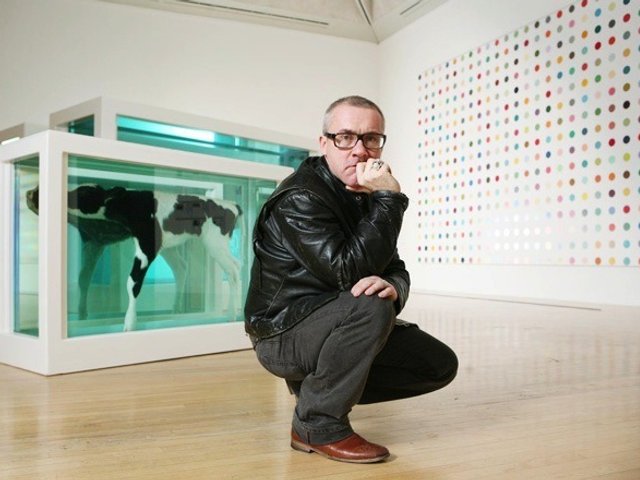A report published earlier this year which claimed that the fumes from Damien Hirst’s formaldehyde works, shown at Tate Modern in 2012, were putting people at risk has been retracted by one of its authors who now says that the findings are “inaccurate and unreliable”.
A scientific research team led by Pier Giorgio Righetti, a professor of chemistry at Milan Polytechnic, monitored the levels of formaldehyde at the Tate show, which was used to preserve works such as Mother and Child Divided, made up of four tanks containing a bisected cow and calf, and Away from the Flock, comprising a lamb suspended in a tank.
Righetti has subsequently said that he is retracting the paper, entitled Remote sensing of formaldehyde fumes in indoor environments, which was published online earlier this year by the London-based Royal Society of Chemistry in its journal Analytical Methods.
Philippa Hughes, the executive editor of Analytical Methods, says: “Further to the expression of concern we published last week, we are following due process towards retraction, in line with our ethical publishing policy and in consultation with the authors."
Righetti's research team initially said that readings of the chemical in the gallery, recorded at five parts per million were in excess of European Union regulations, which set the limit at 0.5 parts per million.
A spokeswoman for Hirst says that the artist’s company, Science Ltd, investigated the claims, consulting with the professor of physical chemistry at Oxford University, Claire Vallance.
“Science Ltd and the authors of the paper co-operated to conduct further tests on formaldehyde works using the equipment referred to in the paper as well as commercially available equipment used by Science Ltd to test the presence of formaldehyde fumes,” she says.
None of the tests showed readings of formaldehyde higher than 0.1 parts per million. “It was agreed that there cannot have been formaldehyde present at the dangerously high levels originally cited in the paper and, accordingly, there was never any risk to the public,” the spokeswoman says. Righetti says that he regrets any alarm or concern caused by the findings.


